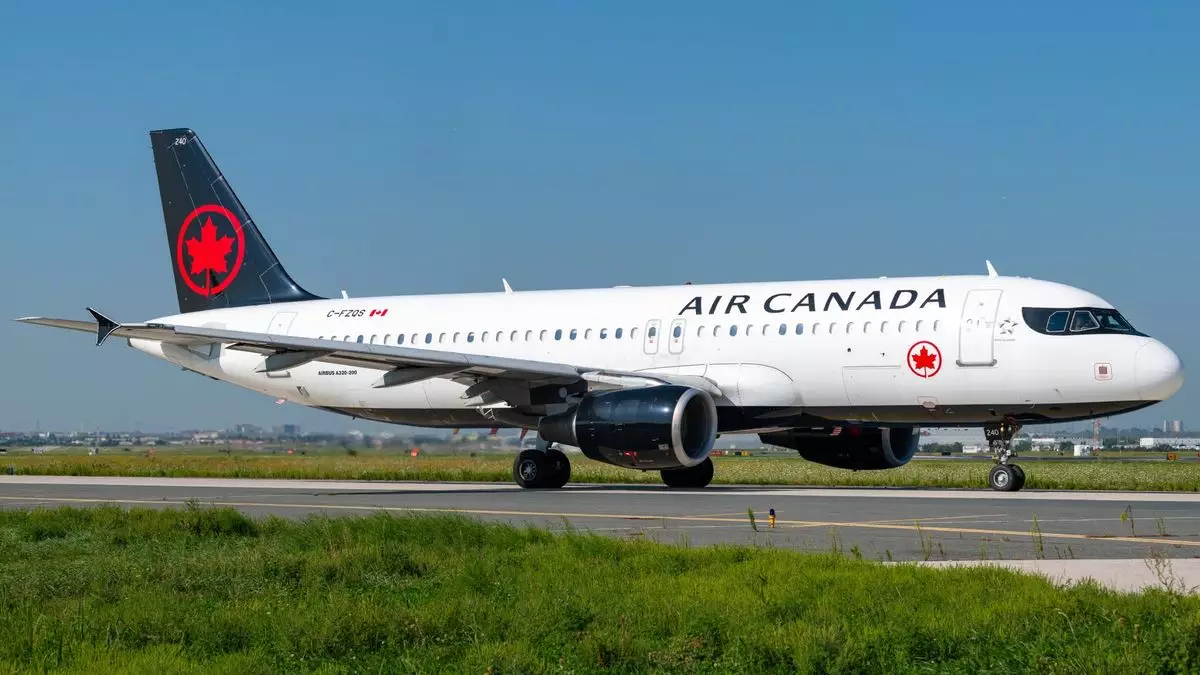Air Canada is currently facing a labor dispute with its pilots union, the Air Line Pilots Association (ALPA), which could potentially lead to a strike or lockout. The airline has announced that it could start winding down its operations as early as Sunday if the required 72-hour strike or lockout notice is given by either party. This could legally happen as soon as September 15, following the conclusion of a 21-day cooling-off period mandated by Canadian law. The parties are currently at an impasse in negotiations, with Air Canada accusing ALPA of making wage demands that exceed average Canadian increases.
The Air Canada pilots union, ALPA, fired back at the airline, accusing it of prioritizing corporate greed over fair compensation for its employees. ALPA highlighted that despite Air Canada posting record profits and rewarding its executives handsomely, they expect pilots to accept below-market compensation. The union emphasized the importance of Air Canada coming to the bargaining table with serious proposals rather than resorting to threats that could disrupt air travel. The blame game between the airline and the pilots union raises concerns about the true motives behind the negotiation deadlock.
In the event of a strike or lockout, flights operated under the Air Canada brand, as well as those by its subsidiary Air Canada Rouge, could be affected. This could lead to flight cancellations and inconvenience for approximately 110,000 Air Canada customers daily. The airline has started preparing for potential disruptions by making arrangements with other airlines to secure space in case of cancellations. However, customers are warned that seats on alternative carriers may be limited, and options for refunds, future travel credits, or rescheduling with Air Canada might be the only choices available. The looming possibility of flight cancellations raises questions about the contingency plans in place to handle the fallout from a potential labor dispute.
Government Intervention and Operational Recovery
Air Canada anticipates that it would take seven to 10 days for normal operations to resume once a settlement is reached with ALPA. The airline has expressed its intention to ask the Canadian government to intervene in the dispute, similar to previous cases where government intervention was successful in resolving labor conflicts in the transportation sector. The involvement of the government raises concerns about the potential impact on collective bargaining rights and the autonomy of labor negotiations within the airline industry. The reliance on external entities to mediate disputes between labor and management highlights a lack of trust and goodwill between the parties involved.
Customer Impact and Service Disruption
The escalating tensions between Air Canada and its pilots union have implications for both customers and the airline’s reputation. The threat of a strike or lockout not only disrupts travel plans for passengers but also puts a strain on the airline’s operations and financial stability. The uncertainty surrounding the labor dispute raises questions about the long-term sustainability of Air Canada’s business model and its ability to maintain a competitive edge in the aviation industry. The customer-centric approach of offering added flexibility to travelers with bookings during the potential strike period is a reactive measure that may not fully address the underlying issues driving the labor dispute.
The labor dispute between Air Canada and its pilots union underscores the challenges faced by stakeholders in the aviation industry. The conflicting interests between management and labor, the impact on customer service, and the potential need for external intervention all point to a complex and multifaceted issue that requires careful consideration and balanced resolution. The ability of both parties to find common ground and address their grievances in a constructive manner will ultimately determine the outcome of the dispute and the future of Air Canada’s operations.


Leave a Reply